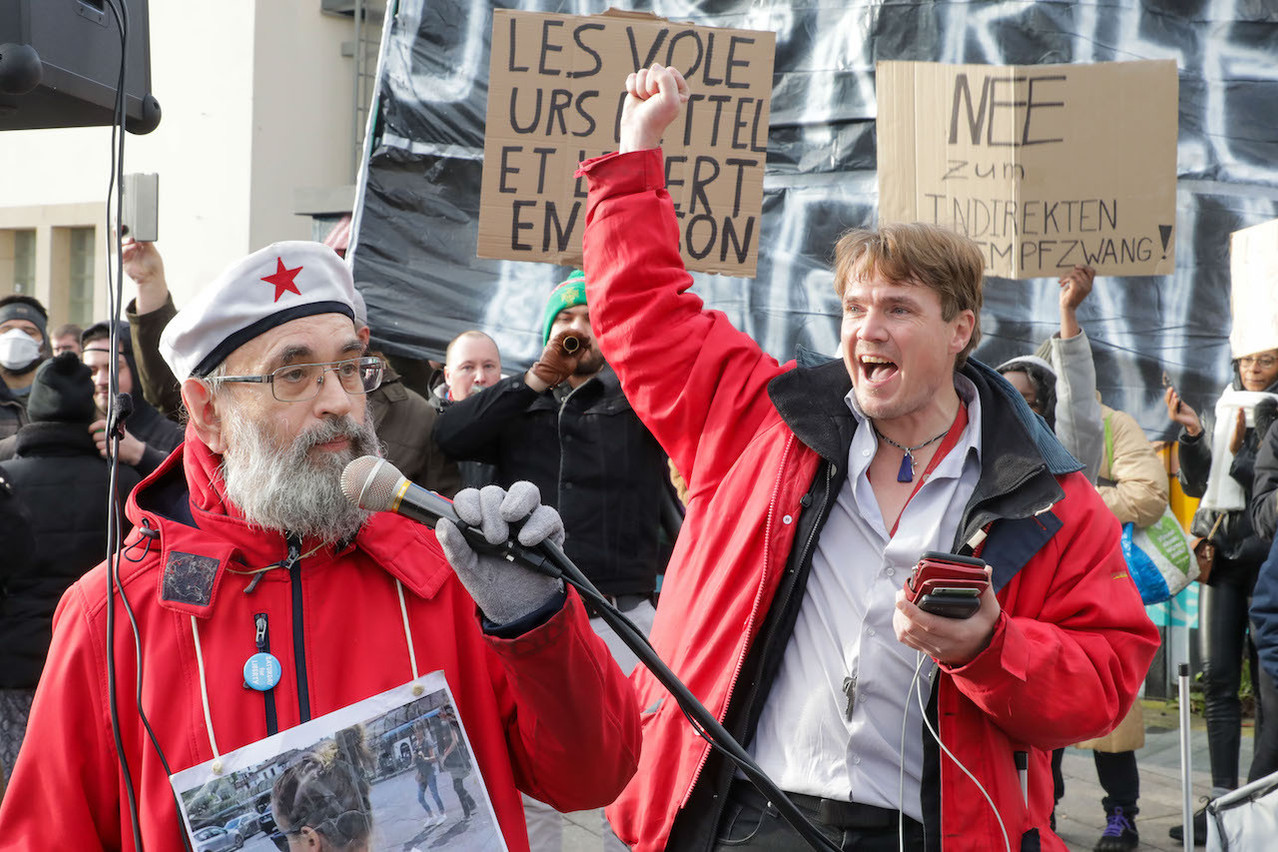Jean-Marie Jacoby’s bright red coat and shaggy salt-and-pepper beard have been a distinguishing feature of many of the demonstrations held against government covid measures in Luxembourg City since the end of last year.
The Zeitung vum Lëtzebuerger Vollek journalist also made a name for himself on Christmas Day with a polemical tweet that led to a complaint against him by Xavier Bettel (DP) and Sam Tanson (déi Gréng). He also recently appeared in court for a series of offences related to the protests against the health regime. The judgement is expected on 1 March, and until then he, like his friend Peter Freitag, is presumed innocent.
Even if he is a leading protester, this is not enough to justify the withdrawal of his press card. "In the exercise of his profession as a journalist, there is, up to now, no particular reproach to be made against Mr Jacoby. We are not considering any measures against him for the time being. He is not currently subject to any criminal sanctions," , President of the Press Council and its card commission, told Paperjam.
Jacoby himself told Paperjam that he is forbidden to write about topics related to the coronavirus: "My opinions and those of my editor are not the same", he says. “As a Marxist, I have never accepted neutrality: objectivity does not exist, there are interests and something is sometimes good for some, sometimes bad for others".
Luxembourg has a long history of very political journalism.
To become a press card holder, the applicant must be a journalist, be of age, not be disqualified and not engage in any trade or advertising activity, according to the law in force. A code of ethics also governs the profession. "I remember a case where a press card was withdrawn because of a violation of the legislative provisions on the ban on advertising," admits Siweck.
Active activism and working for the media are therefore not incompatible, especially as "Luxembourg has a long history of very political journalism, in the sense that there was a very strong link between political parties and media titles".
More than 400 journalists working in Luxembourg
The Luxembourg Press Council, which is responsible for issuing press cards to Luxembourg journalists, is currently seeking to expand its ranks with the hiring of an adviser, against the backdrop of the new law on press aid. The text opens up funding to a wider range of media. "Once a press card has been awarded, there is a requirement for better monitoring, such as checking that all holders are doing journalistic work, checking whether they are still in post or whether they have changed," says Siweck.
There are currently 346 fully accredited journalists in the grand duchy, as well as 83 trainees, according to the institution. For the time being, the verification Siweck mentions is conducted annually, but the Press Council is now aiming to organise it on a quarterly basis.
This story was first published in French on . It has been translated and edited for Delano.
